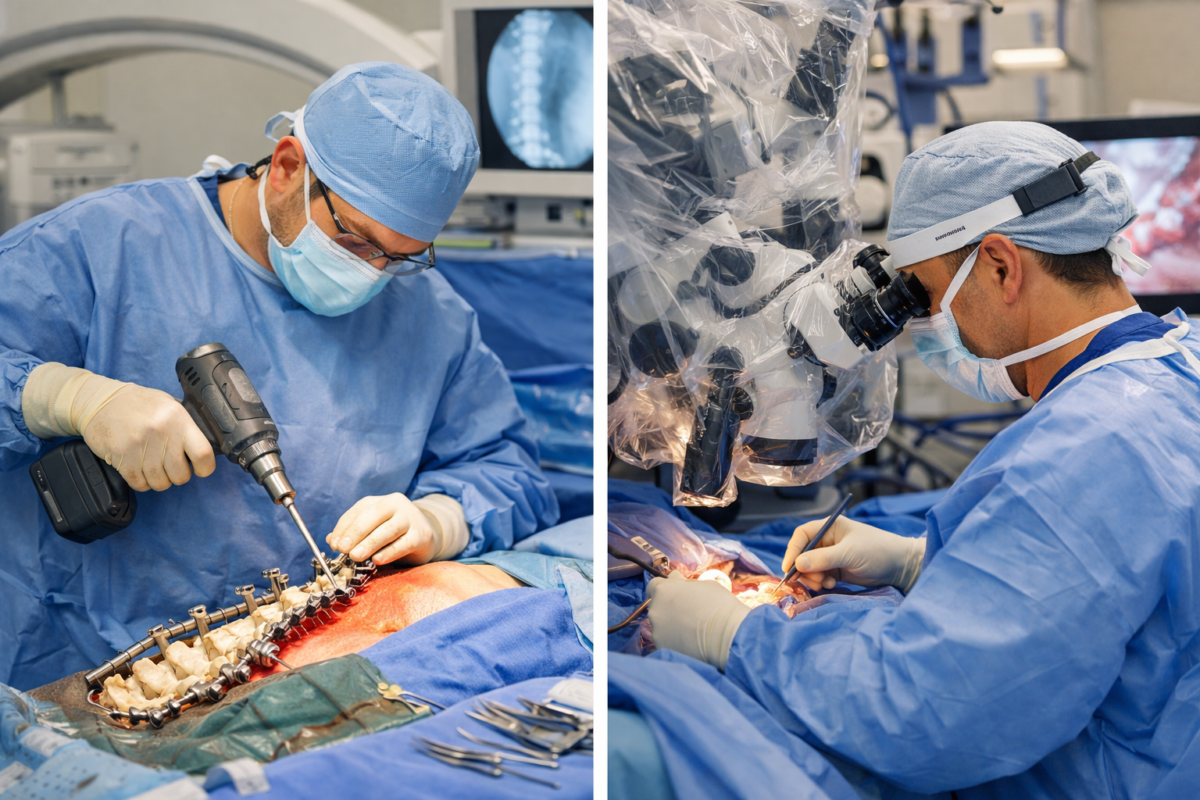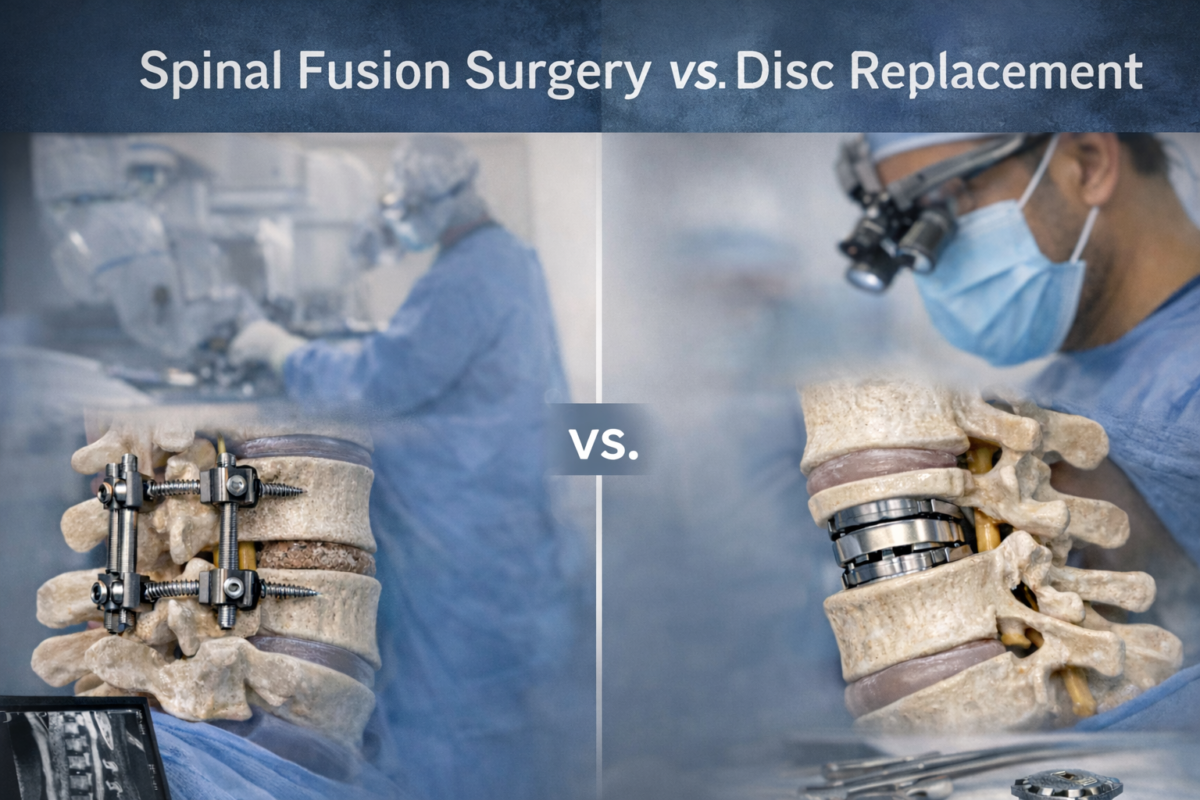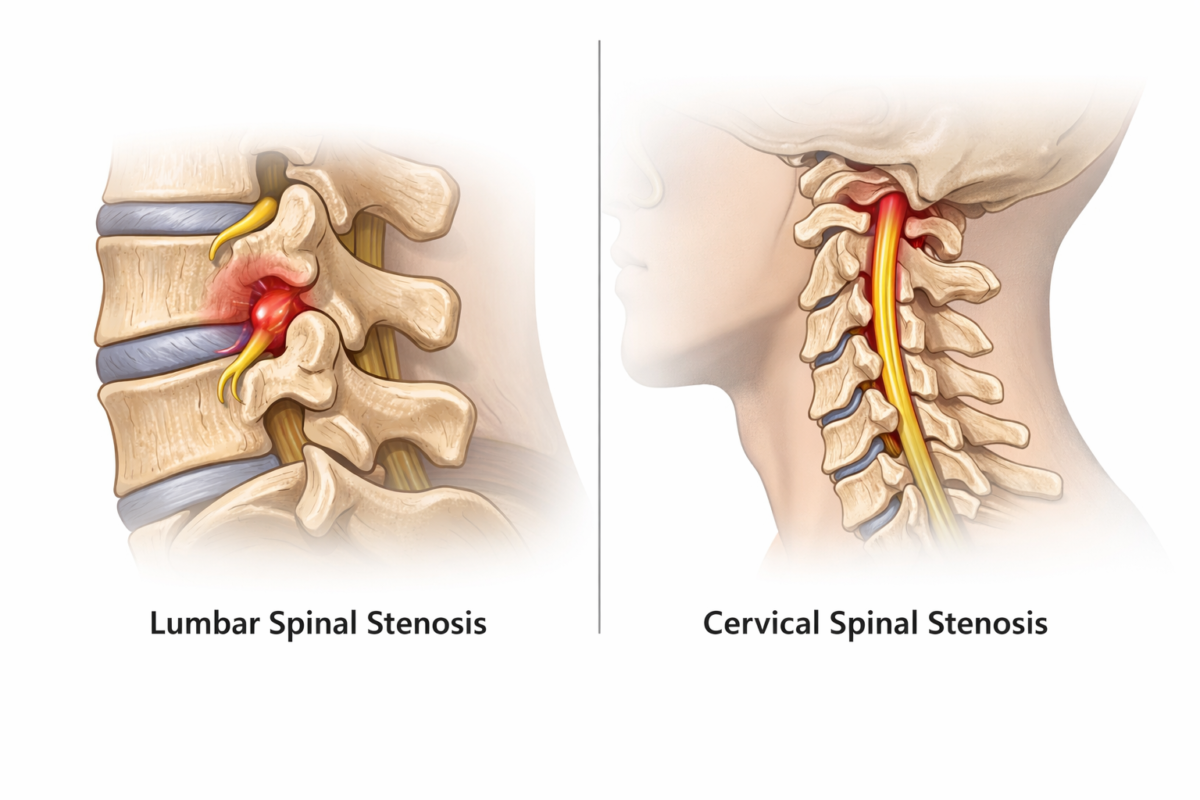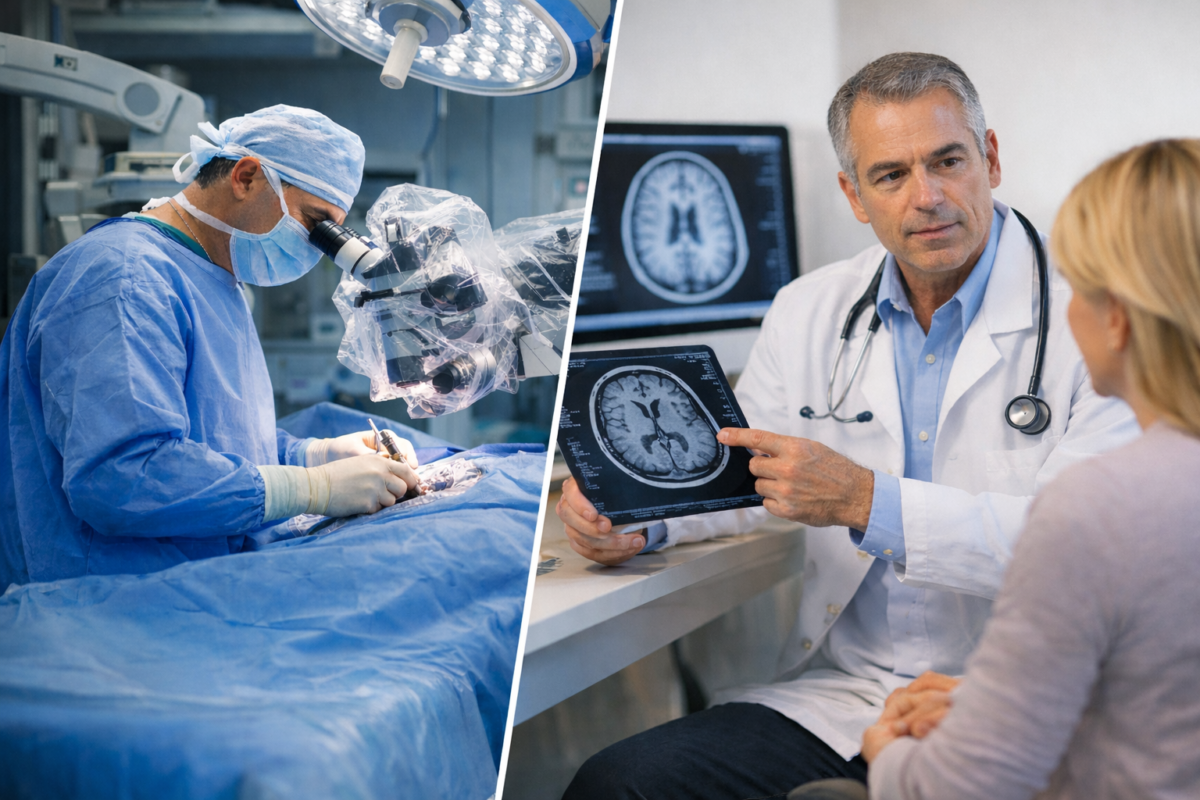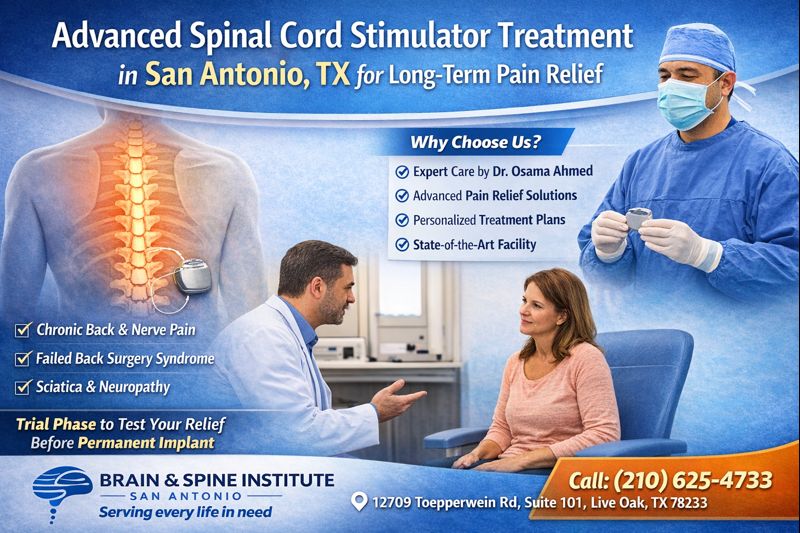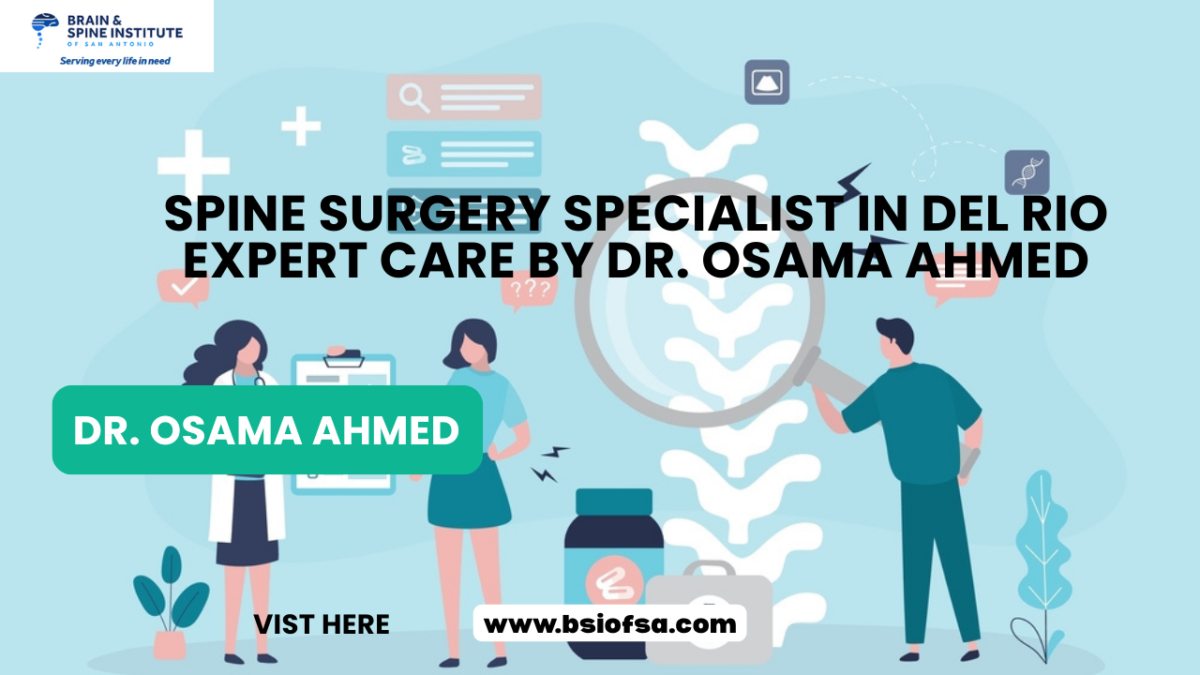When back pain strikes or a spinal injury disrupts your life, choosing the right specialist matters. An orthopedic spine surgeon in San Antonio, TX, focuses on musculoskeletal spine conditions, offering targeted treatments for herniated discs and fractures. Meanwhile, a neurosurgeon addresses nerve-related issues with precision. At the Brain and Spine Institute, San Antonio, Texas, our team of spine specialists, San Antonio, TX, combines both expertise to deliver personalized care. Understanding these differences helps you select the best doctor for your needs—let’s break it down.
What Is an Orthopedic Spine Surgeon?
Orthopedic spine surgeons are medical doctors who are first trained in general orthopedics, then specialize in the spine. They treat the spine as part of the body’s skeletal system, emphasizing bones, joints, ligaments, and muscles.
Training and Expertise
Their path starts with four years of medical school, followed by a five-year orthopedic residency. Many complete a one- to two-year spine fellowship. This hands-on training equips them to handle deformities like scoliosis, spinal fractures from trauma, and degenerative issues such as spinal stenosis.
Orthopedic spine surgeons excel at procedures that mechanically stabilize the spine. For instance, they perform spinal fusions using rods, screws, and bone grafts to realign vertebrae. Minimally invasive techniques, such as endoscopic discectomies, are also part of their toolkit, reducing recovery time.
Common Conditions Treated
- Degenerative disc disease
- Herniated discs causing radiculopathy
- Spinal instability or spondylolisthesis
- Fractures from osteoporosis or accidents
Patients often see orthopedic spine surgeons for sports injuries or work-related strains. Data from the American Academy of Orthopaedic Surgeons shows they handle over 70% of spinal fusion surgeries annually, highlighting their mechanical prowess.
What Is a Neurosurgeon?
Neurosurgeons are specialists in the nervous system, including the brain and spinal cord. They approach the spine through a neurologic lens, prioritizing nerve protection and decompression.
Training and Expertise
After medical school, neurosurgeons undergo a seven-year residency in neurological surgery. Spine-focused fellowships add one to two years. This rigorous path builds skills in navigating delicate neural structures.
Neurosurgeons shine in surgeries requiring nerve manipulation, such as tumor resections or decompressions for pinched nerves. They use advanced tools, such as microscopes and intraoperative neuromonitoring, to protect the spinal cord during procedures.
Common Conditions Treated
- Spinal tumors (benign or malignant)
- Cauda equina syndrome (emergency nerve compression)
- Chiari malformations
- Severe nerve entrapments like cervical myelopathy
According to the American Association of Neurological Surgeons, neurosurgeons perform most intradural surgeries—those inside the spinal canal involving the dura mater.
Head-to-Head Comparison: Orthopedic Spine Surgeon vs Neurosurgeon
Both specialists overlap in treating many spine issues, but their areas of focus diverge. Here’s a clear breakdown:
| Aspect | Orthopedic Spine Surgeon | Neurosurgeon |
| Primary Focus | Bones, joints, ligaments, muscles | Nerves, spinal cord, brain-spine interface |
| Training Length | 5-year ortho residency + 1-2 year fellowship | 7-year neurosurgery residency + 1-2 year fellowship |
| Signature Procedures | Spinal fusion, laminectomy, disc replacement | Microdiscectomy, tumor removal, nerve decompression |
| Best For | Deformities, fractures, instability | Tumors, infections, complex neural issues |
| Minimally Invasive | High expertise (e.g., XLIF, TLIF approaches) | Strong in endoscopic neural work |
| Outcomes | Excellent for mechanical stability (90%+ success in fusions) | Superior for nerve preservation (low reoperation rates) |
Studies, such as those in Spine Journal, show no significant differences in outcomes for routine disc herniations—both achieve 85-95% success. The choice depends on the nature of your condition.
When to Choose an Orthopedic Spine Surgeon
Opt for an orthopedic spine surgeon if your issue stems from structural problems. Imagine a car accident fracturing your lumbar vertebrae: their expertise in hardware stabilization prevents collapse.
They’re ideal for chronic wear-and-tear cases. An orthopedic spine surgeon in San Antonio, TX, might recommend physical therapy first, then arthroscopic surgery if needed. At Brain and Spine Institute, San Antonio, Texas, our orthopedic experts use robotic-assisted surgery for precision, minimizing tissue damage.
Real-world example: A 45-year-old construction worker with spondylolisthesis (slipped vertebra) benefits from fusion surgery, restoring load-bearing capacity.
When to Choose a Neurosurgeon
Turn to a neurosurgeon for nerve-centric problems. If a tumor presses on your spinal cord, causing weakness or incontinence, their neural navigation skills are crucial.
They’re the go-to for emergencies like epidural abscesses from infections. A neurosurgeon can rapidly decompress nerves, preserving function. In San Antonio, spine specialists at our institute handle these with state-of-the-art imaging.
Case in point: A patient with cervical stenosis and myelopathy (spinal cord compression) undergoes an anterior cervical discectomy by a neurosurgeon, regaining hand dexterity.
Overlaps and Team Approaches
Modern spine care blurs lines—many conditions suit either specialist. For sciatica from a herniated disc, both perform discectomies effectively. Dual-trained surgeons (ortho-neuro) exist, but most practices favor collaboration.
At the Brain and Spine Institute in San Antonio, Texas, we integrate both. Call (210) 625-4733 for a multidisciplinary evaluation—your spine specialist in San Antonio, TX, tailors plans using MRI, CT, and EMG diagnostics.
Advancements in Spine Surgery
Technology levels the field. Both use:
- Robotics: da Vinci systems for 3D precision.
- Minimally Invasive Surgery (MIS): Smaller incisions, faster recovery (outpatient in 60% of cases).
- Regenerative Therapies: Stem cells and PRP injections to heal discs without surgery.
Making the Right Choice for Your Spine Health
Don’t self-diagnose—symptoms like radiating pain, numbness, or bowel issues warrant prompt evaluation. Factors include:
- Condition specifics (bone vs. nerve).
- Surgeon experience (look for 500+ spine cases).
- Facility tech (e.g., navigation systems).
- Patient reviews and board certifications.
In San Antonio, seek an orthopedic spine surgeon, San Antonio, TX, or a neurosurgeon via trusted institutes. Prioritize conservative care first: meds, injections, PT resolve 80% of issues.
Ready for relief? Contact the Brain and Spine Institute in San Antonio, Texas, at (210) 625-4733. Our spine specialists in San Antonio, TX, guide you from diagnosis to recovery.
Frequently Asked Questions (FAQs)
Q: Can an orthopedic spine surgeon treat brain issues?
A: No, they focus on the spine. Brain tumors require neurosurgeons.
Q: Is one better than the other for scoliosis surgery?
A: Orthopedic spine surgeons often lead due to their deformity expertise, but teams collaborate.
Q: How do I find a top orthopedic spine surgeon in San Antonio, TX?
A: Check board certification, patient outcomes, and facilities like the Brain and Spine Institute in San Antonio, Texas. Call (210) 625-4733 for consultations.
Q: What’s recovery like after spine surgery?
A: Varies—MIS: 2-6 weeks; fusions: 3-6 months. PT accelerates it.
Q: Do spine specialists in San Antonio, TX accept insurance?
A: Most do, including Medicare. Verify with providers like ours.
Q: Orthopedic spine surgeon vs neurosurgeon—which for herniated discs?
A: Both excel; choose based on the surgeon’s case volume and your symptoms.
